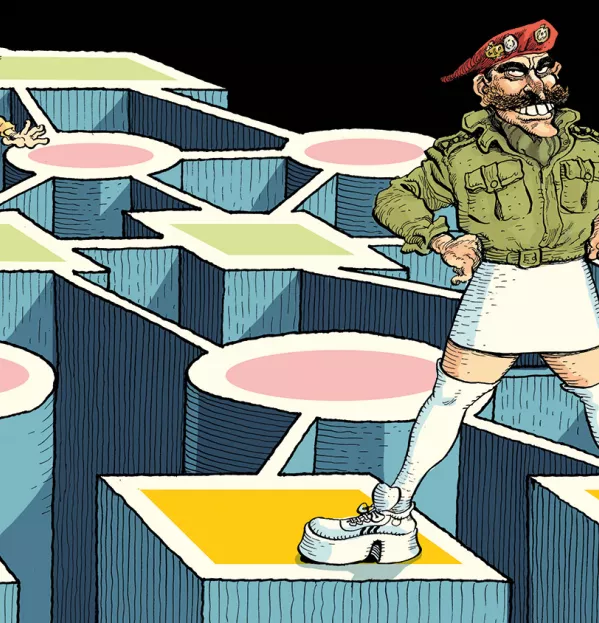I loved Smash Hits magazine. I was in the closet and it was the 90s, so I’d let my sister buy it. I’d then sneak into her room, nick it, and pore over the latest stories about Steps and the Vengaboys.
I don’t know what you call the “Who are you?” decision-tree quizzes buried in the glossy pages, but I know I’d go nuts for them. I loved answering nonsense questions in a bid to find out which Backstreet Boy I was going to marry. Or better still, which Spice Girl I was.
There is something compelling about a process that reflects back at you who you are. They speak to our narcissism. They satisfy a curiosity. Those designing training and development for teachers know it, too. The Myers-Briggs Type Indicator (MBTI) and its relatives are the grown-up versions of my Smash Hits quiz and often feature prominently. I’m the field marshal (ENTJ) you say? Sign me up.
The problem is that these tests are not much more reliable than Smash Hits quizzes. Let’s take MBTI. It turns out that I’m not an “ENTJ” - there is no such thing.
Developed in the 1940s, the MBTI tried to capture Carl Jung’s ideas about human personality. It was based on Jung’s own theories, rather than any actual scientific evidence. It’s no surprise that it has two major problems, which means that it’s unable to predict people’s behaviour or success in their jobs.
First, your answers polarise you at one end or the other of four dimensions. According to the test I can be either “sensing” or “intuitive” - I cannot be both. But, in studies where the questions were asked in a different way, it’s clear that it is perfectly possible to be both. I might be asked whether I like working with others or working alone. But we all know that depends on the circumstances. If I’m trying to get my marking done, I’d rather get on with it alone. If I’m planning lessons, I’d rather have colleagues sharing their ideas.
Trust it, use it, prove it, groove it
Second, if you retake the test after, say, five weeks, there is a 50 per cent chance that you’ll end up with a different answer. On some days, in certain company I’m more “thinking” than “feeling”. I might like to think that I’m a “thinker” - but, like most people, I also go with my gut feeling and then rationalise my decision afterwards.
It turns out that however much I wanted to be, I’m not the field marshal. I am something more complex, with a unique personality in a unique context.
I’m concerned that personality tests such as MBTI feature too frequently in our training and development. Over the years, more than one facilitator has tried to put this Spice Girl into a box. We must be bolder about challenging bad science like this when we see it.
Instead of using precious time on these tests, we should focus on improving our ability to make to make creative, thoughtful decisions that solve the common problems we face. Instead of focusing on trying - and failing - to give ourselves a category, we should focus on improving our expertise. But how?
Anders Ericsson - who researches “the science of expertise” - would argue this problem-solving skill depends upon on our “domain-specific mental models”. That what we know about a particular area and how well that knowledge is organised is connected to how good our decisions will be. The more we know and the better it’s organised, the better we see patterns, predict what might happen next and solve problems creatively.
We must spend more time improving our knowledge of curriculum design, teaching, assessment and pastoral leadership. These are the big pillars of expertise in our profession. Do we understand the sequence of a particular topic? It’s common misconceptions? Do we understand the trade-offs between formative and summative assessment?
But just knowing isn’t sufficient. We also have to shape and automate what we know by using it. We must spend more time seeing examples of what good looks like, followed by deliberate practice, guided by a mentor, in solving the most common problems we face.
If Ericsson is right, this will both build and better organise our mental models. In turn, we’ll be able to make better decisions when we face the knotty problems that come with teaching and leading in schools. I’d bet that this - not a personality quiz - is going to help us to keep getting better.
And for those still wondering: I’m Baby Spice. Obviously.
Matt Hood is director of the Institute for Teaching

